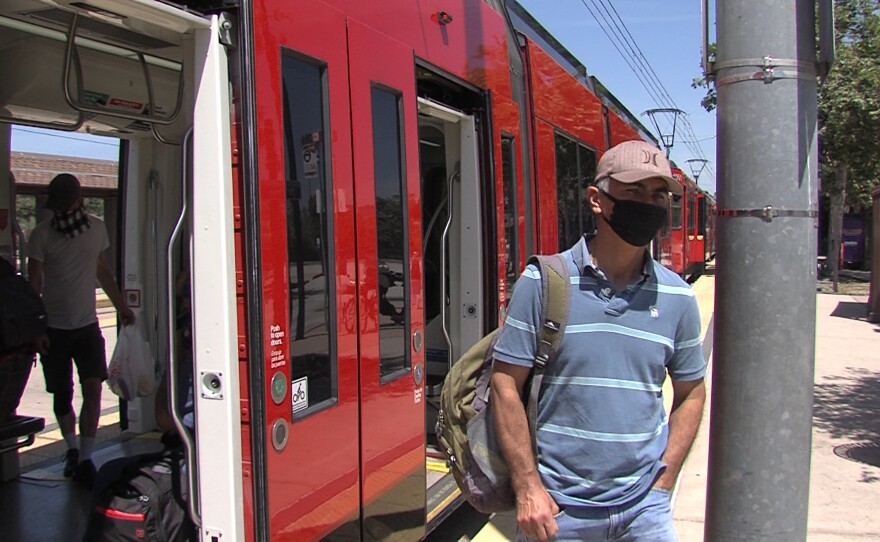The Metropolitan Transit System is offering bonuses totaling $3 million to its frontline workers to show appreciation for their efforts during the coronavirus pandemic, as it looks to bring back the bus and trolley services it cut last month.
Those were some of the top items in the transit agency's budget board members adopted Thursday for the coming fiscal year, which begins July 1. The $1,000 bonuses will be given to both employees and contractors in July and August, and are expected to be funded by the federal CARES Act stimulus bill.
"At a time when they could have stayed home, the employees are out in the public dealing with their own problems at home with health care or health concerns, plus their childcare concerns," interim CEO Sharon Cooney told board members. "As a thank you for all of that, and to kind of keep good will and morale through this period, we would like to offer up a one-time bonus."
RELATED: Coronavirus Prompts MTS To Put 2020 Tax Measure On Hold
MTS expects to receive a total of $220 million from the stimulus bill, which will also be used to help cover operating deficits over the next three fiscal years. The funding is allowing the agency to keep its reserves of roughly $37.8 million untouched, at least through June 2021.
Still, depending on the speed of the economic recovery, the agency predicts having to close deficits well into the future.
"What we're hoping is that you will understand that this is a very, very volatile situation that will impact us pretty drastically, probably for at least 5 years," Cooney added. "The CARES Act — certainly we're very pleased to have that buffer. But we must be judicious in how we use those funds, because as we move forward we're going to need to stretch those as far as we can."
MTS has seen its ridership plummet since March when the pandemic forced many San Diegans to stay home from work. Last month it reduced bus and trolley frequencies to more closely match demand. Current ridership is roughly 30% of what it was last fall, cutting into passenger fare revenue. At the same time, the sales tax revenues that fund much of the agency's budget are also down significantly.
RELATED: More Biking And Walking, Fewer Cars: How Coronavirus Is Changing San Diego Streets
But ridership has been slowly recovering every week since early April, as some businesses, parks and beaches reopen. MTS is budgeting for a near complete return to pre-pandemic service levels next fiscal year to enable social distancing among passengers, with a target of keeping each bus and trolley car down to 25% capacity.
Passengers are already required to wear facial coverings while on board, and boarding on buses is allowed only through the rear doors to protect drivers from infection. Passengers with disabilities can still board through the front doors, which have ramp access.
Earlier this month in a bid to allow passengers to pay fares without having to approach the card reader near drivers, MTS also began offering one-way fares on its mobile ticketing app, Compass Cloud.
MTS staffers and board members are still reeling from the sudden death of CEO Paul Jablonski on Sunday. The agency is planning a procession of 40 buses from Balboa Park to its 12th and Imperial transit center Friday morning to honor Jablonski and the impact he had on public transit in San Diego.






